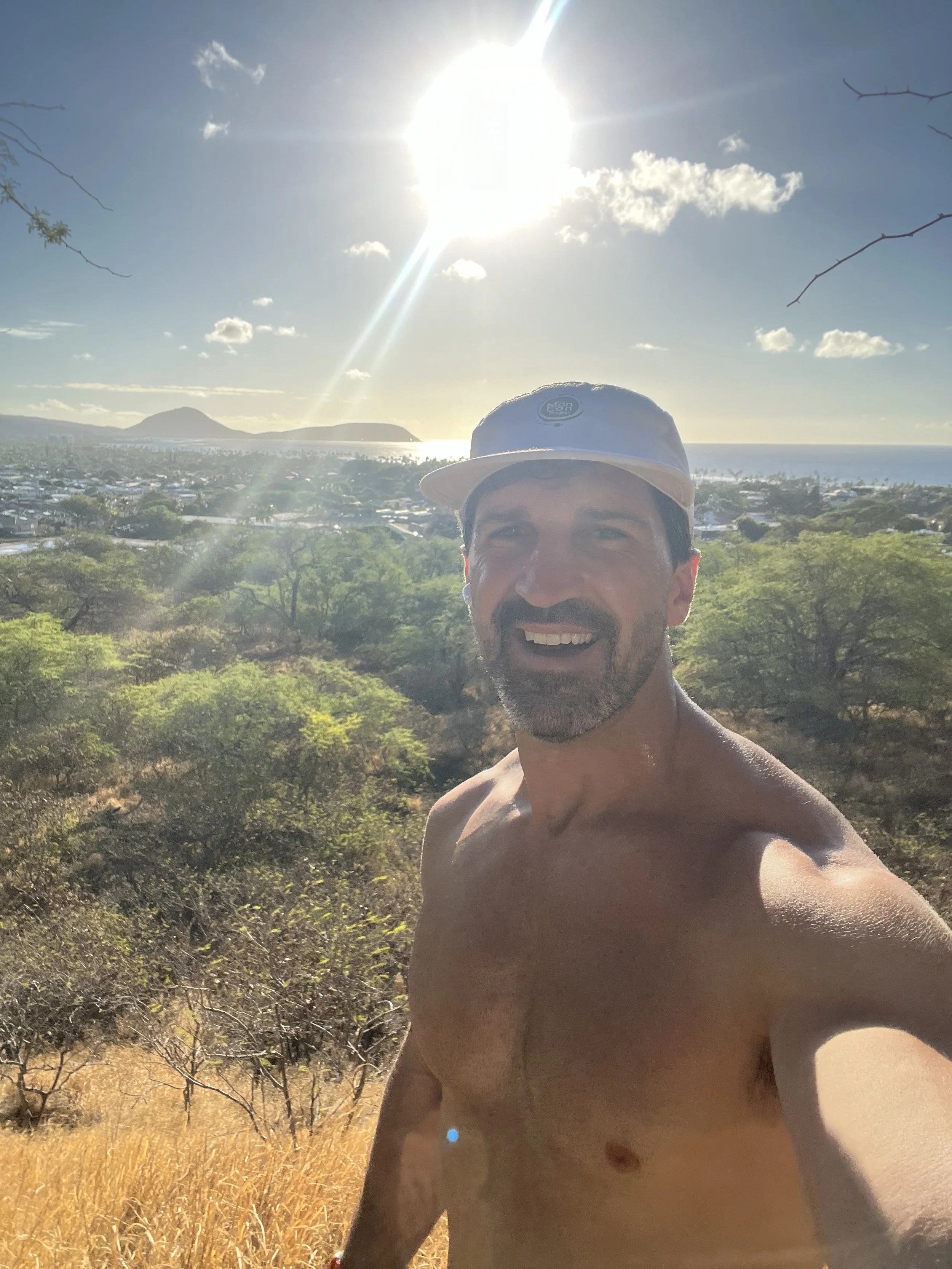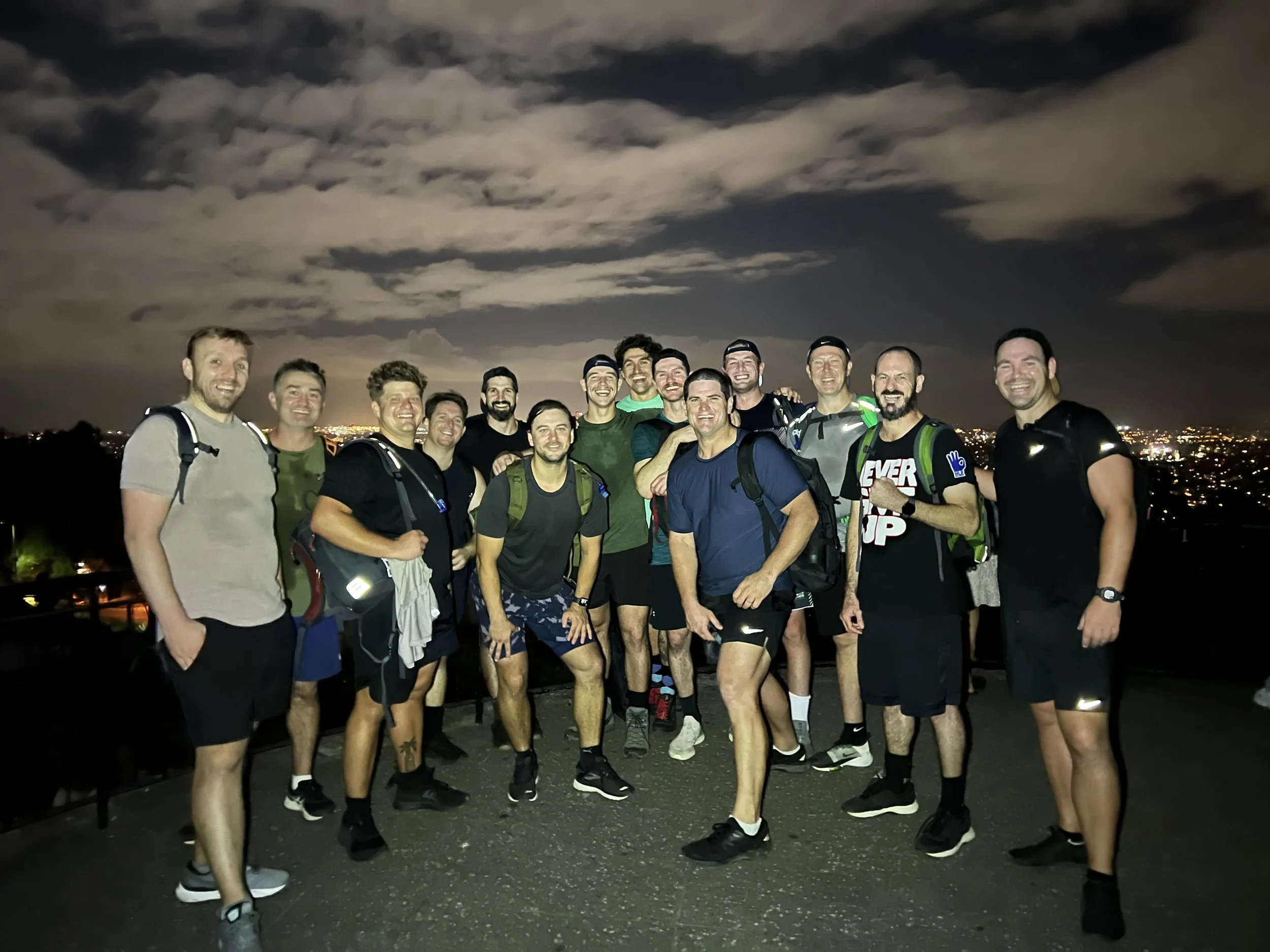FIT in Your 50s Starts with a 30s PLAN
We often think of health as something to worry about later in life. But the truth is, the habits you form in your 30s and 40s set the stage for how mobile, active, and healthy you'll be in your 50s, 60s, and beyond.
It’s like preparing for a marathon (both literally and figuratively)—the earlier you start training, the more likely you'll finish strong.
Running Around Diamond Head In Hawaii
The human body starts to lose muscle mass and flexibility earlier than most of us realise.
By the age of 30, our muscle mass begins to decline at a rate of 3-8% per decade, accelerating into our 50s and 60s.
This process, known as sarcopenia, reduces not only our strength but also our mobility, balance, and quality of life.
Many of us ignore these early signs, thinking, "I’m still fit and healthy, I don’t need to worry yet."
But the fact is, neglecting to address your health now makes it much harder to maintain later.
By the time you’re in your 50s, those small warning signs—tight joints, weakened muscles—have become major roadblocks to living a fully active life.
I have watched people I care about dramatically change how they live their life because of this. Not feeling comfortable in the gym, or being held back by the fact they don’t feel great only speeds up the decline.
I have this idea that i’ll still be living a great quality of life in the 50s, 60s and beyond because of the decisions i make today.
I even have a client in his 50s who still completes sessions I would find challenging. The key for him has been to never stop exercising. I’ve asked him how he has maintained it through a busy career that requires him to travel, and raising a family.
For him it was to never stop. He has always made time for the gym and when life got busy he paid for a trainer (me). He has also been educating himself on nutrition and more recently recovery & longevity.
What I love about this is he has taken control by outsourcing some things and educating to get better health.
You can do this too. If you don’t feel comfortable in the gym. Start with exercise that you love until you love to exercise… or hire a trainer.
Joining the Strong Men of Value Academy may be the thing to kickstart your journey. You can chat with other man in similar situations or even get recommendations for what you next steps may be.
One of the biggest misconceptions people have is that muscle and flexibility loss are inevitable.
While it's true that range of motion declines with age, especially in the shoulders, hips, and knees, this doesn’t mean you’re doomed to a life of limited mobility.
Studies have shown that incorporating regular strength and flexibility exercises into your routine can slow these declines by up to 50%.
One study even found that 85-year-old weightlifters had similar muscle strength to inactive 65-year-olds
This is where starting early pays off. Flexibility decreases by about 6 degrees per decade after age 55, but by implementing mobility work, you can maintain (or even improve) range of motion well into your later years.
For me I just follow stretch routines on youtube. I post a few in our Academy.
Aside from the mental benefits and confidence I experience. Physically I feel so much better after lifting weights and stretching.
I notice when I miss a few sessions I feel stiff in my hips and I don’t like it. My routine has been a minimum of 2 gym sessions a week and moving the body at least 5 days a week.
Over the years that’s included pilates, running and crossfit.
It may sound daunting to overhaul your routine, but here’s the good news: small, consistent changes make a huge difference. You don’t need to start by training like an athlete—just begin with the basics.
Get Great Health Checklist:
Follow an exercise plan that includes strength training
Strength training twice a week is key to preserving and even building muscle mass. Focus on compound movements like squats, deadlifts, and lunges.
Resistance training also improves joint flexibility by strengthening the muscles around them, giving you greater range of motionIncorporate flexibility and mobility work
Flexibility exercises, such as yoga or dynamic stretching, should be part of your weekly routine. These movements increase blood flow to the muscles and improve joint flexibility.
Even just 10 minutes of stretching after a workout can help maintain your range of motionAnnual health check-ups
Staying on top of your health through regular bloodwork can help you track key markers like vitamin D, testosterone, and inflammation levels. These tests give insight into how your body is functioning and what areas need more attention.
A simple blood test can highlight deficiencies that might be contributing to muscle loss or fatigue
I personally started getting annual blood work. It was pretty cool to see and now I have a baseline for what my levels are now which will only help me as I age.
There’s a reason athletes talk so much about "playing the long game." The benefits of focusing on health now are exponential: you’re not just preserving your physical abilities, but you’re actively creating a better quality of life.
Here are some of the biggest wins from staying consistent with your health:
Improved Cognitive Function
There’s a strong connection between muscle mass and brain health. Exercise releases chemicals that protect the brain, reducing the risk of cognitive decline and diseases like Alzheimer’sReduced Risk of Chronic Illness
By maintaining muscle mass and flexibility, you lower your risk of developing chronic conditions like osteoporosis, heart disease, and diabetes. Strength training improves bone density, reducing your chances of fracturesA More Active Lifestyle
Simply put, the more you invest in your body now, the more mobile and independent you’ll be in your 70s and 80s. Resistance training helps prevent falls—one of the leading causes of injury and death in older adults
Flexibility work keeps your joints mobile, reducing stiffness that can otherwise limit your movement.
We only need to look around at the quality of peoples lives. I personally see many who have given up and feel restricted because of where their health is. That provides me with enough motivation to continue investing into my health for the long term.
It’s never too early—or too late—to start investing in your health. If you take one thing away from this, let it be this: start small, but start now.
Add strength training to your routine twice a week. Stretch after your workouts. Schedule that overdue blood test.
The actions you take today will pay off for decades to come.
If you’re ready to get started but don’t know where to begin, I’m here to help.
Cheers
Lachlan Stuart


